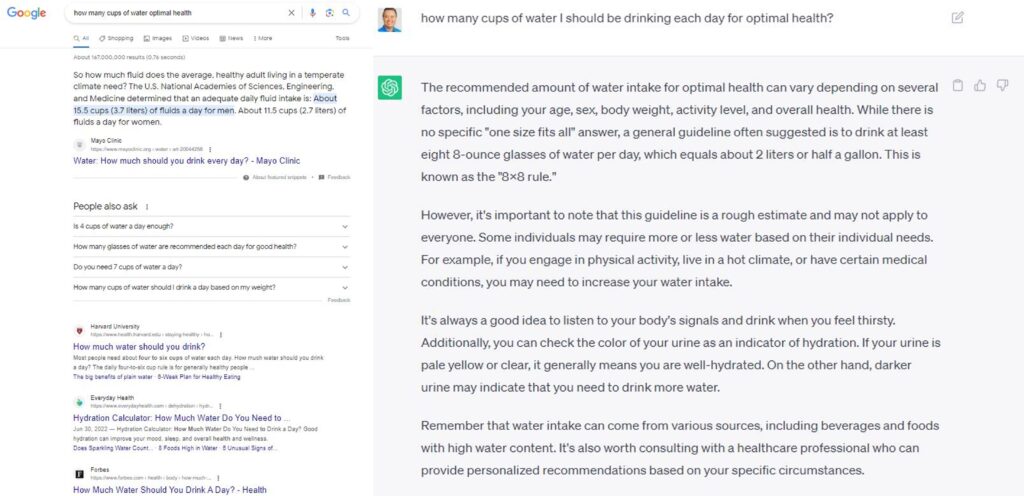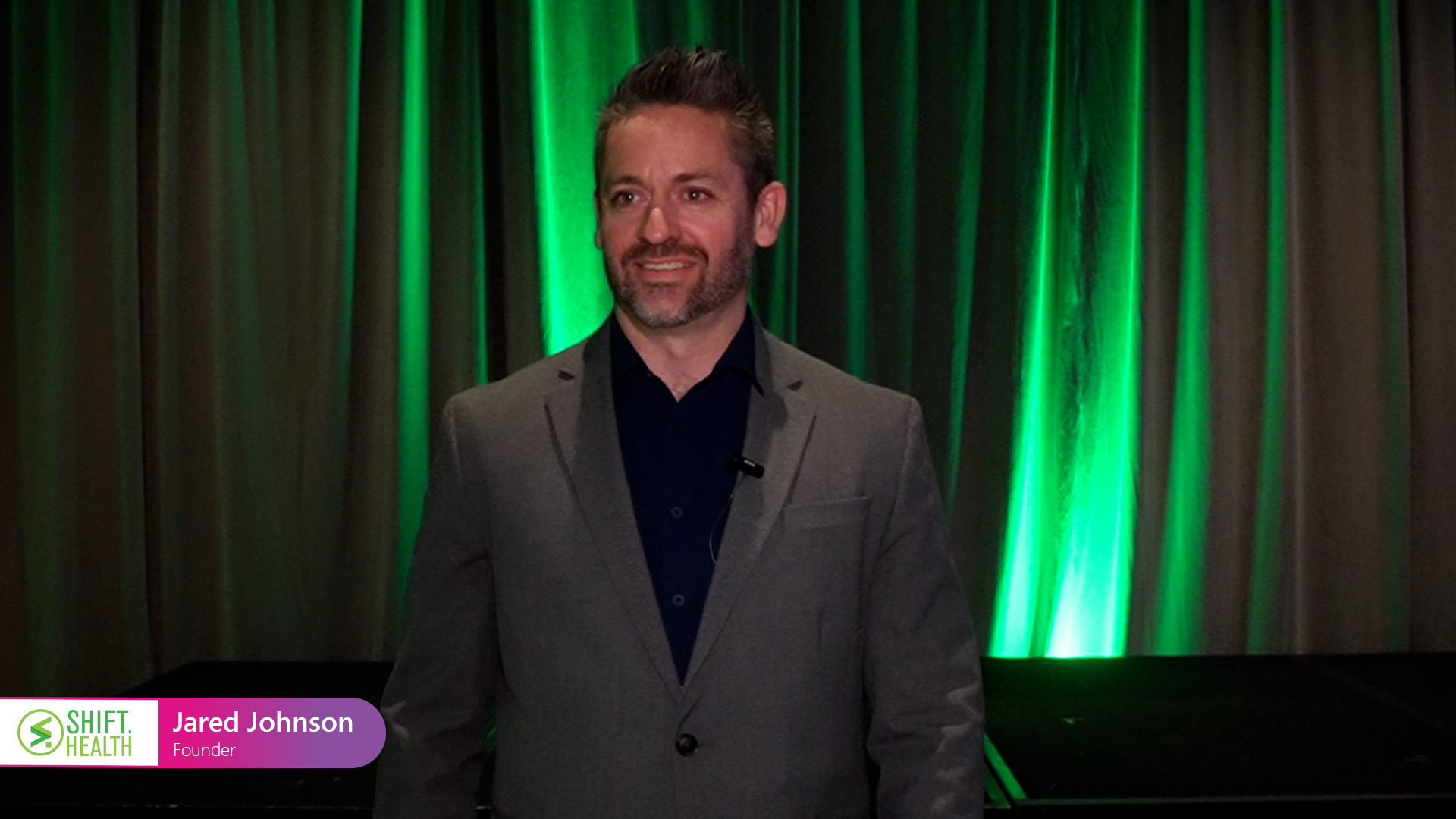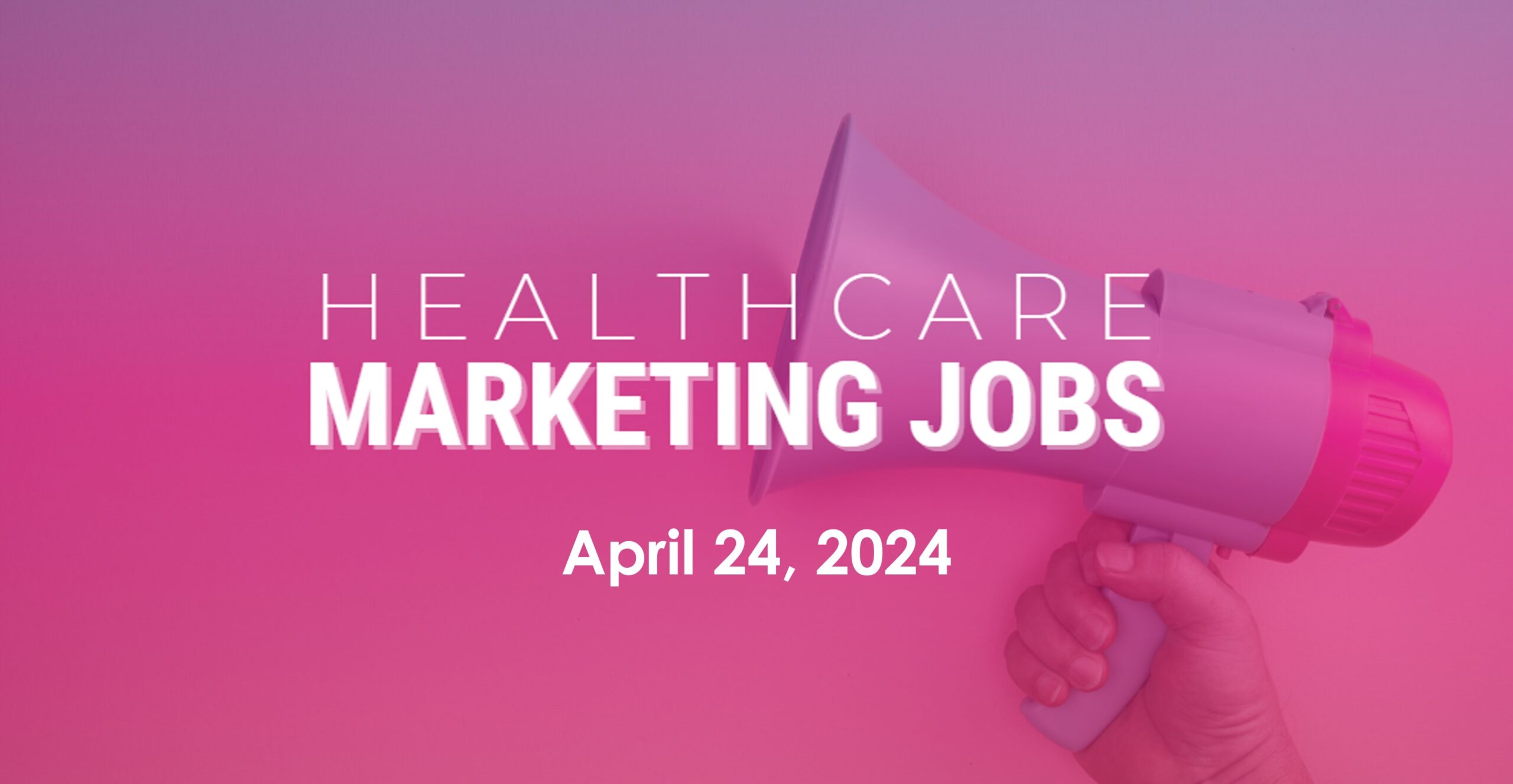ChatGPT and large language models are completely disrupting search engine optimization (SEO) in two fundamental ways. Winning the SEO game has suddenly become much more difficult now that any organization, anywhere can produce content with just a few input prompts. Even more disruptive, however, is the change to search itself that ChatGPT has forced upon the world. Marketers need to be ready.
Zero-barrier Content Creation with ChatGPT
When ChatGPT from OpenAI exploded onto the scene late in 2022, there was suddenly no longer any barriers to creating marketing content. Through its simple interface, marketers and non-marketers alike can now create blogs, articles, social posts, and entire websites in just a few minutes. Content Marketing has now a commodity – just like email marketing has been for the past decade.
While it is true that the quality of content created by ChatGPT is not yet as good as an expert writer who has specific domain knowledge, for most organizations the AI-generated output is good enough for SEO purposes and increasing a site’s ranking. As more content from more website comes online, it will be more difficult for organizations to land on the first page of search results on Google (86% of worldwide searches), Bing (8%), Yahoo (2%), and DuckDuckGo (0.7%).
Why is this the case? Search engines algorithms rank websites highly that produce new content, that is relevant to visitors, on a regular basis. With ChatGPT, any organization can meet this criterion, making it harder to stand out.
What does this mean for marketers? First and foremost, marketers should focus on other aspect of page ranking – mobile-friendliness, formatting content better, using high quality links, URL length, etc. Optimizing those parameters is not something that can be done easily with ChatGPT.
As well, marketers should pay even more attention to both the content that is being consumed on their websites and what target audiences are searching for. ChatGPT is only good at creating content that is it told to. Astute marketers that keep their ears to the ground will be able to stay ahead of the masses who are blindly using the app to create content they believe to be relevant.
ChatGPT is Changing the Way We Search
There is another change that ChatGPT is forcing upon marketers. This change is even more disruptive and foundational than SEO and page rankings. ChatGPT is changing the way people search for information on the Internet.
The triumvirate of Google, Bing, and Yahoo have taught the world the following search routine:
- Type keywords into the search bar
- Get a list of the most relevant websites that match those keywords
- Review the results that are presented, including sponsored pages
- Locate one that you believe to have the information you are looking for
- Click that link to go to that page
With ChatGPT however, we are witnessing a fundamental change. People are now beginning to use ChatGPT to get answers to specific questions.
Instead of typing in keywords into Google’s search bar, people are now writing plan English questions into ChatGPT and getting the answer they are looking for within ChatGPT. There is no need for users to look at a list of websites and then choose one to visit. ChatGPT just presents the answer.
Here’s why that is such a big change.
Imagine if I wanted to know how many cups of water I should be drinking each day for optimal health. If I type that into Google I get a list of websites that I can go visit. If I type that same question into ChatGPT it will give me a direct answer based on a combination of all the medical websites on the internet.
Which one is easier for end-users, Google on the left or ChatGPT on the right? Answer: ChatGPT.
The impact for marketer is profound. If more users use ChatGPT to find answers, then those users will not become website visitors. Boom goes search.
Google is so worried about the potential for ChatGPT to erode it’s search empire that it made an explosive announcement at their annual developers conference earlier this month. That announcement was captured this excellent article by Matt Novak – “Google Is About To Turn The Online Publishing Industry Upside Down”.
Here is the essence: Google will be introducing it’s own search powered by it’s own AI that will produce intelligent answers similar to that of ChatGPT. No more pages of links. That is a huge change.
Why would Google do this? Frankly they don’t have a choice. If they do nothing, then people will flock to ChatGPT as their default internet search interface (happening already). By introducing their own version, they can at least keep users in their ecosystem.
Keep in mind, there has been a prelude to this change to internet search: Alexa from Amazon and Siri from Apple. If you use either of those voice interfaces a question, they provide you an answer from the internet, not links to other websites.
Impact on Marketers
So what does this mean for marketers? I suspect that in the future we will see a bifurcation of internet search.
When users are seeking answers to a specific question like: How should I respond to a cybersecurity attack on my organization? They will get an AI-generated response to their specific question that may have some sponsored links on the side or at the bottom. The only way to play in this type of search is through paid advertising (SEM).
However, when users are seeking information that do not lend itself to a singular answer then a traditional list of websites will be presented. For example, “patient reminder software that can integrate with Epic” or “Italian restaurants in downtown Toronto”.
I expect this change to internet search to be very rapid. The sand is shifting quickly and for the first time it seems like Google is playing catch-up.
This does not mean that marketers should abandon their websites or change go-to-market strategies right away. However, I would suggest that marketers keep up to date on the latest developments in this area and be ready to pivot quickly.
What impact do you think AI will have on marketing? If you would like to share your thoughts in an article, we may publish it in June when we focus on the topic of AI + Marketing. Email us at op-ed@swaay.health
Image Credit
Photo by Shantanu Kumar: https://www.pexels.com/photo/chatgpt-webpage-open-on-iphone-16474955/








Thank you! Excellent synopsis